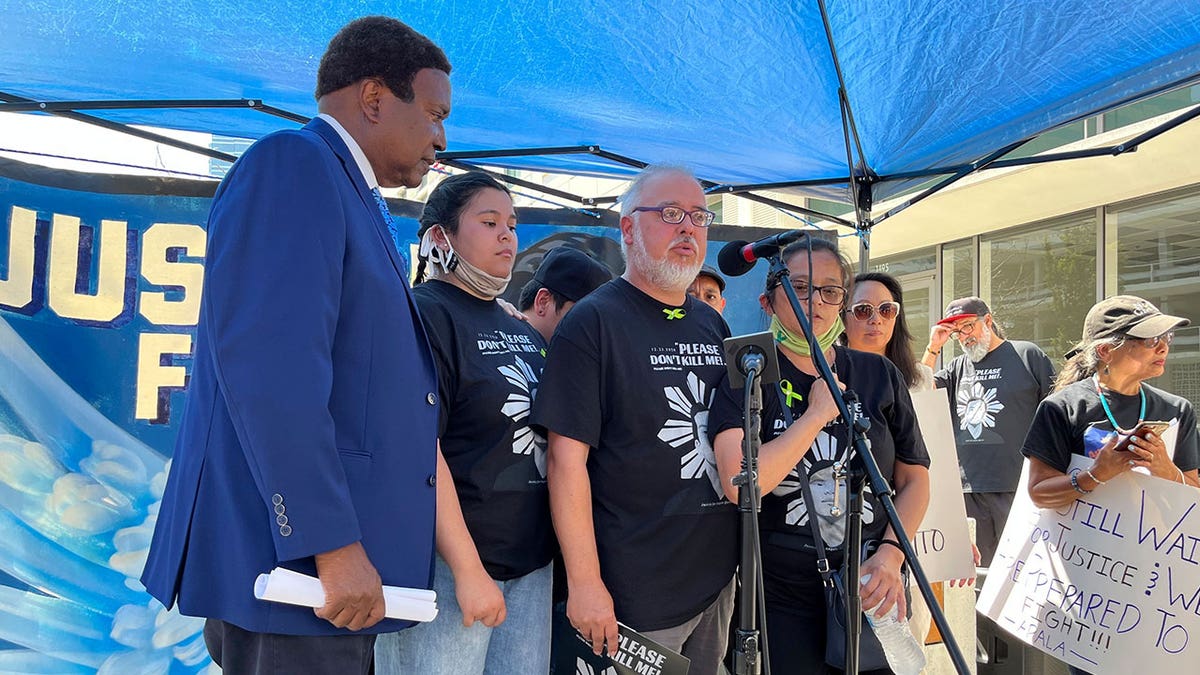Fox News Flash top headlines for September 8
Fox News Flash top headlines are here. Check out what's clicking on Foxnews.com.
The office of California's attorney general said Wednesday it will review a decision by a San Francisco Bay Area district attorney not to pursue homicide charges against police officers who restrained a prone man and placed a knee on his neck in 2020.
Attorney General Rob Bonta's office did not provide further comment. Contra Costa County District Attorney Diana Becton said through a spokesperson that a copy of the public report on the death of Angelo Quinto will be sent to the California Department of Justice.
OHIO GRAND JURY DECLINES TO INDICT POLICE OFFICER WHO SHOT AND KILLED MAN ON NEW YEARS
Attorneys for Quinto's family requested the review after Becton concluded Friday that Antioch police officers used reasonable force in engaging with the Navy veteran, 30, on the night of Dec. 23, 2020.
Quinto's death is among several in recent years prompting lawmakers in multiple states to call for new methods in how law enforcement officers interact with people in a mental health crisis.

Family's attorney John Burris, left, with Angelo Quinto's stepdad Robert Collins, center, is joined by Angelo's sister Bella Quinto Collins, second from left, and Angelo's mom Cassandra Quinto-Collins, second from right, during a news conference in Oakland, California, on Sept. 7, 2022. (AP Photo/Janie Har)
Quinto's family called 911 for help calming him down during a bout of paranoia, the result of an assault that left him with a traumatic brain injury. They said in their federal lawsuit that officers placed a knee on Quinto's neck — in the manner that killed George Floyd in Minneapolis — and that the cause of death was asphyxiation. He was rushed to the hospital and died Dec. 26.
In her statement, Becton said that one officer placed one knee on Quinto's shoulder to handcuff him while another officer held on to his legs.
"This was the extent of force utilized by the two officers to restrain Quinto," she said.
Attorneys for the family blasted the prosecutor's decision, saying that she ignored critical information and allowed officers to smear Quinto by suggesting he was to blame. The prosecutor noted that Quinto had fentanyl in his system, but his lawyers said the drug was administered at the hospital.
"It is hard to even fathom how the district attorney’s office can say that fentanyl was a contributing factor in his death, when the fact is it was given to him in a therapeutic, clinical way," said John Burris, one of his attorneys, at a Wednesday rally to update supporters on the case.
He said the DA's decision took the officers’ account at face value and made no attempt to resolve discrepancies.
"This boy was alive, he was breathing. He was having an episode, but he was not having trouble breathing. And his oxygen was cut off by the conduct that the police were involved in," Burris said.
GEORGIA DEPUTY POLICE CHIEF BUSTED IN FLORIDA PROSTITUTION STING WITH $180, PACK OF WHITE CLAW
The Contra Costa County Coroner’s Office listed the cause of death as "excited delirium syndrome," a questionable medical diagnosis opposed by the American Medical Association and other medical groups.
Quinto's mother, Cassandra Quinto-Collins, broke down while addressing the small crowd gathered by the Elihu M. Harris State Office Building in Oakland. She said the prosecutor's decision was as if "Angelo was being killed in front of me again, and I cannot do anything about it."
In an email, Rick Hoffman, president of the Antioch Police Officers' Association, called Quinto's death "an unfortunate circumstance" and the prosecutor's decision to clear officers of wrongdoing was the right decision.









































